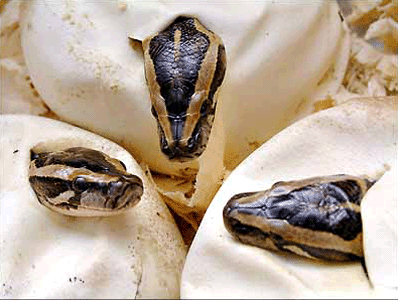Florida Launches Python Hunt
January 23, 2013
The Florida Fish and Wildlife Conservation Commission is holding what it calls the “Python Challenge 2013,” the state’s first-ever, open-invitation hunting contest. The challenge, which was launched on January 12, is a one-month python hunt in South Florida. Wildlife officials hope the contest will help control the spread of Burmese pythons, which have come to dominate wildlife in the Florida Everglades. Pythons are known to be battling alligators for the position of top predator in Everglades National Park, and native mammals are paying the price, according to a study by two Florida university researchers. The 2012 study was the first to provide evidence linking a sharp decline in populations of medium- and large-sized mammals in the park to an explosion in the number and range of the large and prolific snakes.
The state has set three contest requirements: Contestants must be 18 years of age; contestants must take an online training course; and contestants can only hunt on state land, not in the national park, which is off limits. The hunter who takes the largest snake will receive a prize of $1,000. The hunter who “harvests” the most snakes will be awarded $1,500. Approximately 1,300 people have signed up for the hunt.
Native to Southeast Asia, the python is classified as an invasive species in North America. From 1999 to 2004, pet exporters met a growing American demand for Burmese pythons by shipping more than 144,000 baby snakes to the United States. However, new owners were frequently unprepared or unwilling to care for the grown snakes, which can measure 23 feet (7 meters) in length and weigh 200 pounds (91 kilograms). Many owners dumped their snakes into the wild. Pythons released into the Florida Everglades, a region with a climate similar to that of the snakes’ native habitat, flourished. Pythons also have escaped into the wild during hurricanes.

- Young Indian pythons hatch from eggs outside the mother’s body. The leathery shells of snake eggs expand as the young snakes grow inside. When they are ready to hatch, young snakes slash their shells with a special tooth that grows on the upper jaw. (AP/Wide World)
Additional World Book articles:
- Ecology
- Invasive Species (A Special Report)
- Reptile


